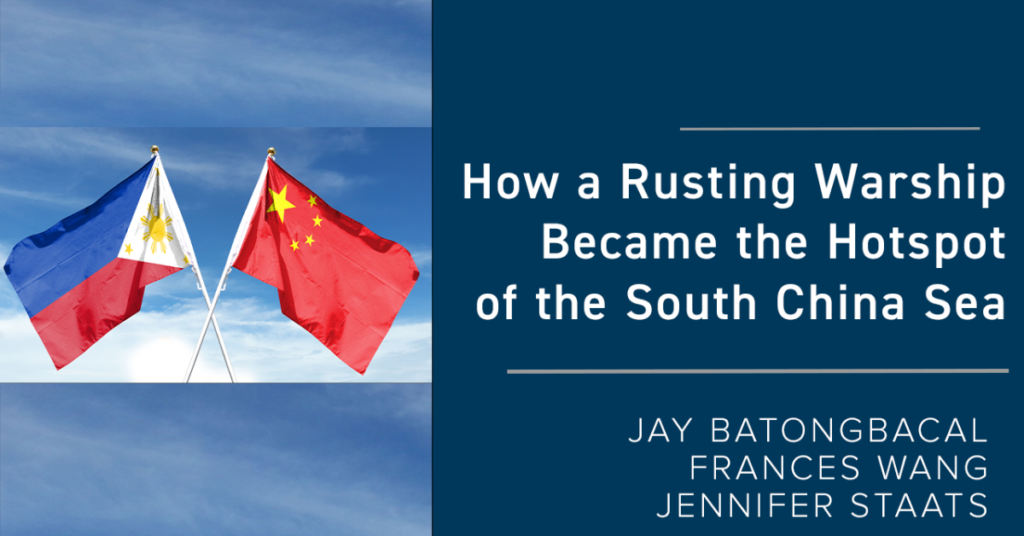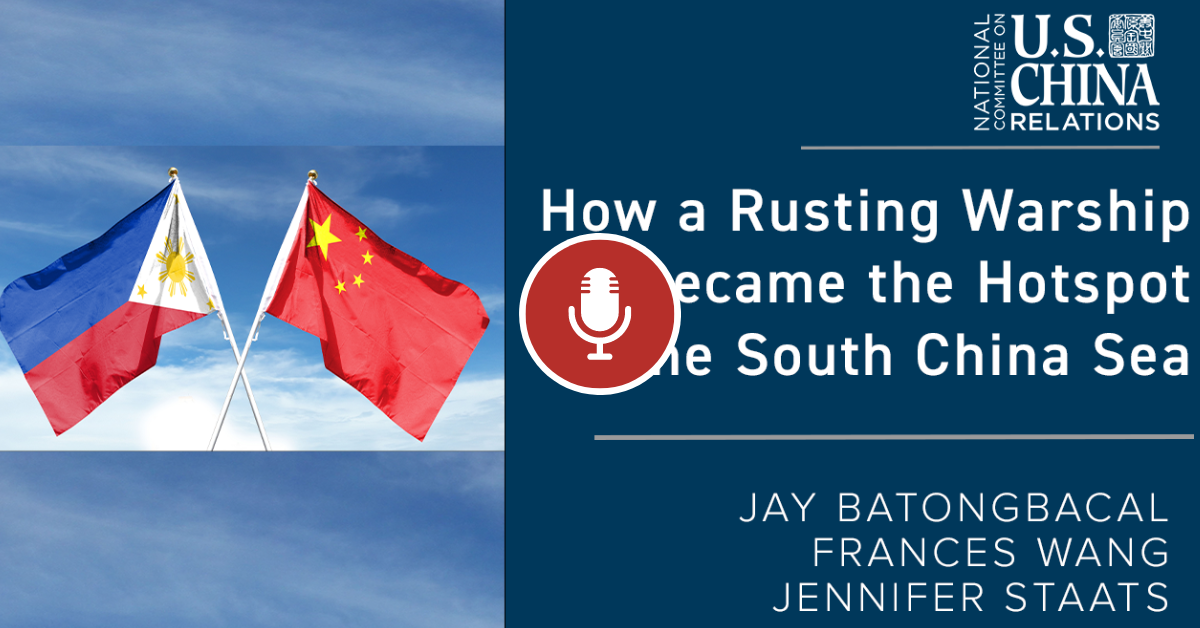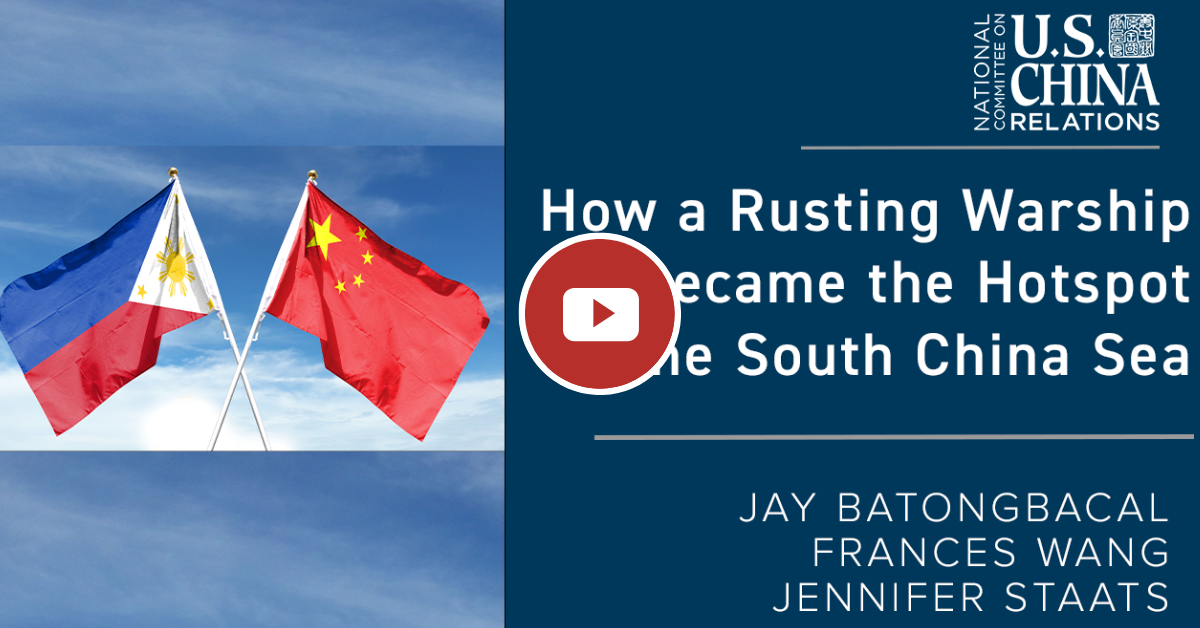Friday, March 8, 2024 | 4:00 PM EST - 4:30 PM EST
Second Thomas Shoal, a feature in the South China Sea, is highly contested: both China and the Philippines claim sovereignty over this area and have confronted each other repeatedly around the shoal, stirring tensions that have escalated into a military confrontation between the two countries. The Chinese Embassy in Manila announced that the Chinese Coast Guard would continue law enforcement activities around the Second Thomas Shoal and condemned the Philippines’ presence in the region; the government of the Philippines insists that it has sovereignty. Both sides state that the other is violating international law.
China’s sovereignty claims in the South China Sea have long been a point of contention for some Southeast Asian countries, the United States, and others. Conflict management in the Second Thomas Shoal has lasting implications for China’s neighbors.
On March 8, 2024, Jennifer Staats discusses rising tension in Second Thomas Shoal and China-Philippine relations with Jay Batongbacal and Frances Wang.
Speakers

Jay Batongbacal
Jay L. Batongbacal is a lawyer with undergraduate degrees in political science and law from the University of the Philippines, as well as a master’s of marine management and doctorate in the science of law, both from Dalhousie University (Canada). He is currently a professor and chairs the graduate studies program at the University of the Philippines College of Law, while also serving as director of the Institute for Maritime Affairs and Law of the Sea of the U.P. Law Center. He has worked extensively on maritime affairs since 1997, carrying out research, consultancy work, and teaching, with numerous national and international publications to his credit. His current research interests include the Law of the Sea, Aerospace Law, and the Law of Naval Warfare.

Frances Wang
Frances Y. Wang is an assistant professor of political science at Colgate University. She received her Ph.D. in politics from the University of Virginia. She was previously an assistant professor at the Singapore Management University, a postdoctoral fellow at the University of Notre Dame’s International Security Center, a Minerva-United State Institute of Peace Scholar, and a senior editor at the Carnegie Endowment for International Peace. Her research interests include international security, authoritarian media and public opinion during interstate conflicts, and Chinese foreign policy. Her forthcoming book, The Art of State Persuasion: China’s Strategic Use of Media in Interstate Disputes, investigates China’s media statecraft throughout its foreign conflicts. She has published in peer-reviewed academic journals such as Security Studies, Journal of Contemporary China, International Studies Quarterly, as well as general publications such as The Diplomat, South China Morning Post, and The Independent.
Moderator

Jennifer Staats
Dr. Jennifer Staats is the director of East Asia and Pacific programs at the U.S. Institute of Peace. She previously served as director for advanced capabilities on the National Security Council staff, and spent several years working in the Office of the Secretary of Defense, where she focused on policy issues related to Asia. She received her Ph.D. from Harvard University and her MPA from Princeton University. She is a fellow with the National Committee’s Public Intellectuals Program.


